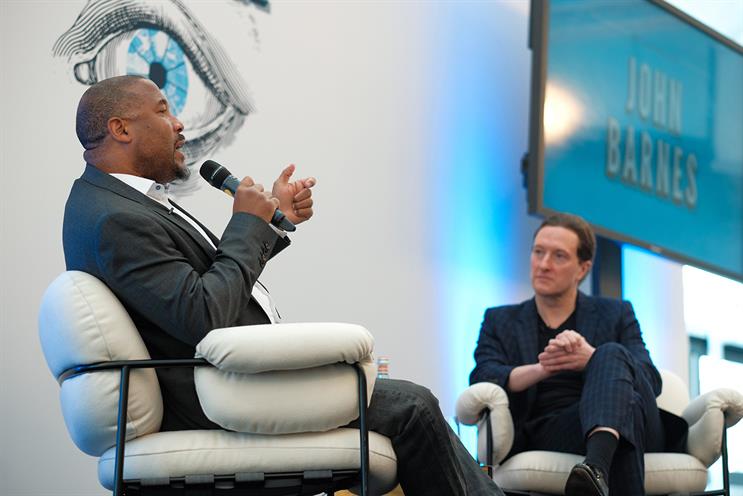Former footballer John Barnes recently joined BBC One's Question Time panel in what was, for many, a highly memorable performance.
University of Oxford lecturer Professor Jennifer Cassidy took to Twitter to say: "John Barnes took 90 sec to deconstruct the nature of discrimination in the UK, how it‘s bolstered by the media and fed to us by narratives. The fundamental necessity to admit it and confront it together."
We were lucky enough to have John (pictured, above left) join our launch event for Initiative UK's State of UK Culture report last month.
His challenge of demographics and stereotypes was spot on and chimed with our view that audiences should be defined by the cultures that bind them, not antiquated socio-demographic groupings.
The UK is in a state of social and political upheaval and this is creating a supercharged environment for new cultures to emerge and old ones to evolve.
We believe that we’re at a pivotal moment in the UK – a cultural watershed akin to the counterculture of the 1960s, the punk movement of the 1970s and the free-love revolution of the late 1980s.
It is by understanding these cultures that we can begin to build brand relevance and growth.
The challenge for brands
So what has this got to do with brands? It’s tougher to build a brand today than it has ever been.
For years, the fastest route to building a brand was by reaching as many people as possible. By maximising exposure, you could all but guarantee some impact.
Now, that’s no longer the case. There are countless channels and inventory is virtually limitless.
Anyone can buy more eyeballs; and with competition fiercer than ever before, having an impact can be an enormous challenge. There are too many brands with 90%-plus awareness that are in decline.
For this reason, we believe that relevance is more important than reach. Brand relevance demands that you know more about a consumer than their age and income.
Culture is key
After all, what defines, unites or divides us isn’t our demographics, it’s culture. Culture forms the canvas and fabric of how we live our lives.
It’s the invisible bond between people who share the same beliefs and passions. If brands truly understand culture, then they have the opportunity to build relevance.
And brands that increase relevance and move at the speed of culture outperform their competitors on every metric.
This is why we created the State of UK Culture report.
It’s a guide to some of the most exciting emerging subcultures in UK over the past 12 months that we believe will come to shape mainstream culture over the next few years.
We explored nine subcultures, ranging from stay-at-home dads and supportive sports to audiophiles and people who use LSD to hack their mind.
It took more than 4,000 interviews, 35 in-depth sessions and more than 1,500 hours of work. It was a beast, but it was worth it.
What we’re most proud of is that it challenges the stereotypes that our industry so often falls into believing. Esports gamers aren’t all male. Fashion tribes are dead. Team sport isn’t all about fierce competition.
Like John says, stereotypes and demographics are useless at best and dangerous at worst.
The best way we can help our clients is to remove the antiquated demographic stereotype and define our audiences by the cultures that bind them.
Richard Morris is chief executive of Initiative UK


